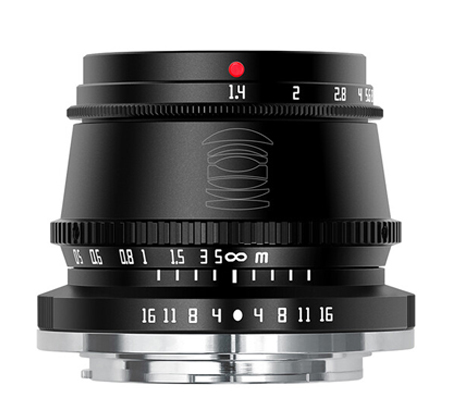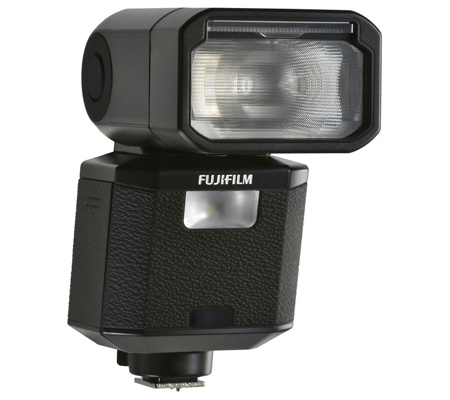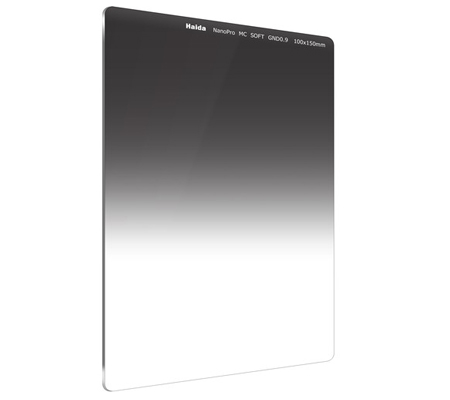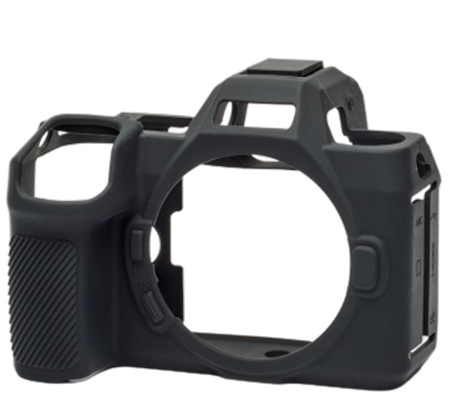
Specification :




In the tilt lens, the real world is transformed into a lovely miniature landscape, making it feel like you've entered the Lilliput in Gulliver's Travels.

As shown in the left figure below, there is no difference between the lens and the regular 50mm f1.4 lens when the tilt function is not used. With a large aperture, only part of the ducks are in focus and the rest of the image is bokeh. As shown in the right figure below, after using the tilt function and without changing the aperture, the focal plane is parallel to the sides of the three ducks, so all three ducks can be shot clearly.
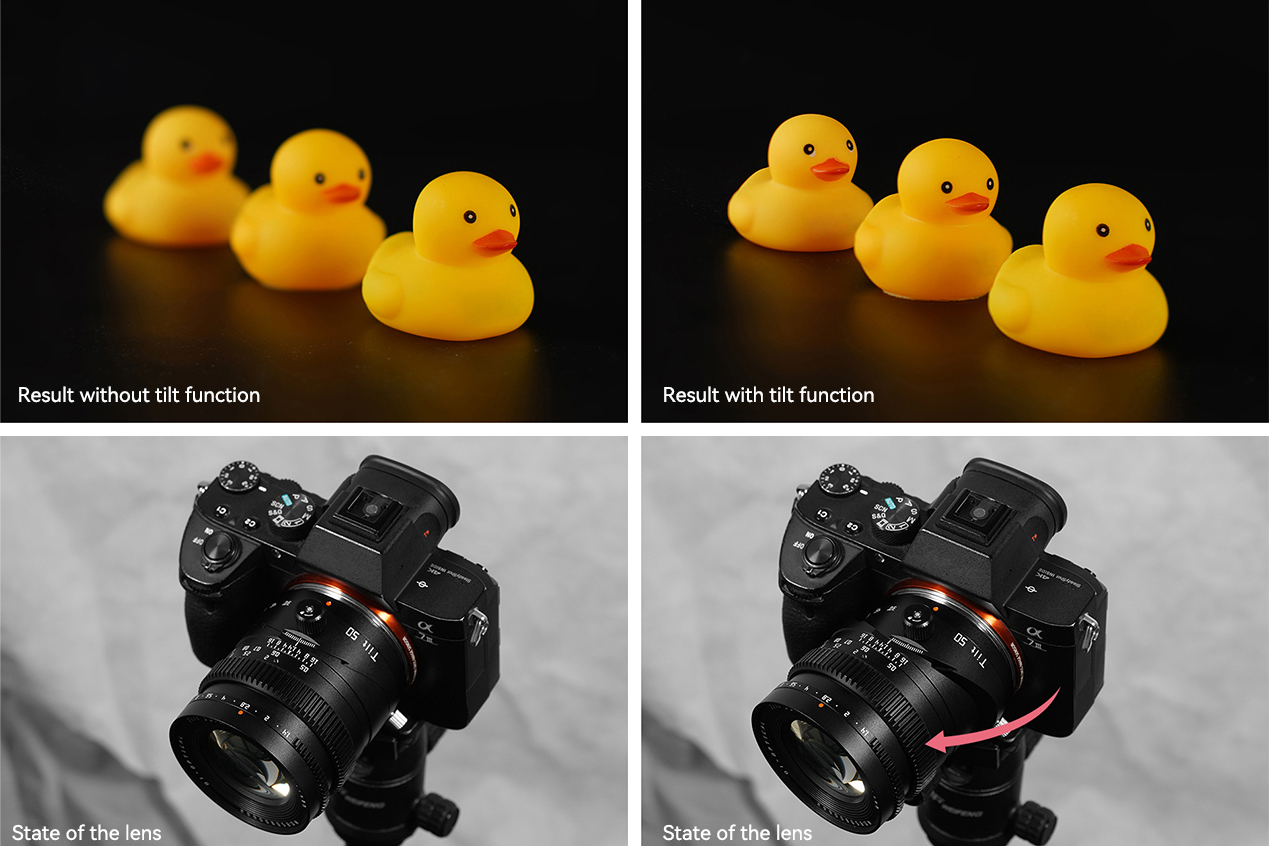
When taking pictures, we often encounter the need to only make some areas clear and other areas blurred. For example, for the lucky cat, if you want its face to be clear, and the torso to be blurred. If a regular lens is used, since the face and the torso are in the same focal plane, the face and the torso will stay clear at the same time. But using a tilt-shift lens can meet this need without changing the aperture, and making photos more artistic.
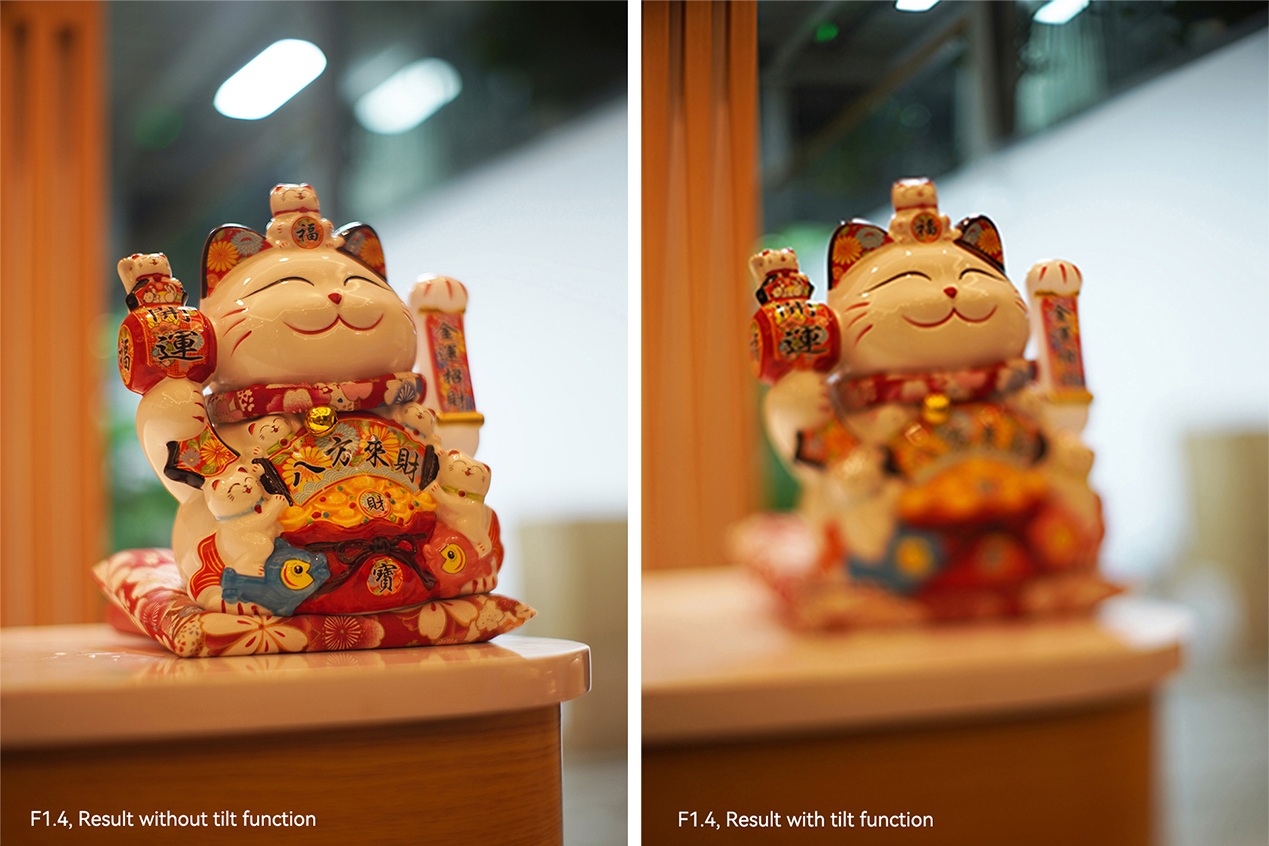
The video clips from the perspective of "Lilliput" are novel and fun. For more convenient and professional video shooting, the lens has been specially optimized - the focus ring and aperture ring are designed to fit most focus followers in accordance with cine lens.
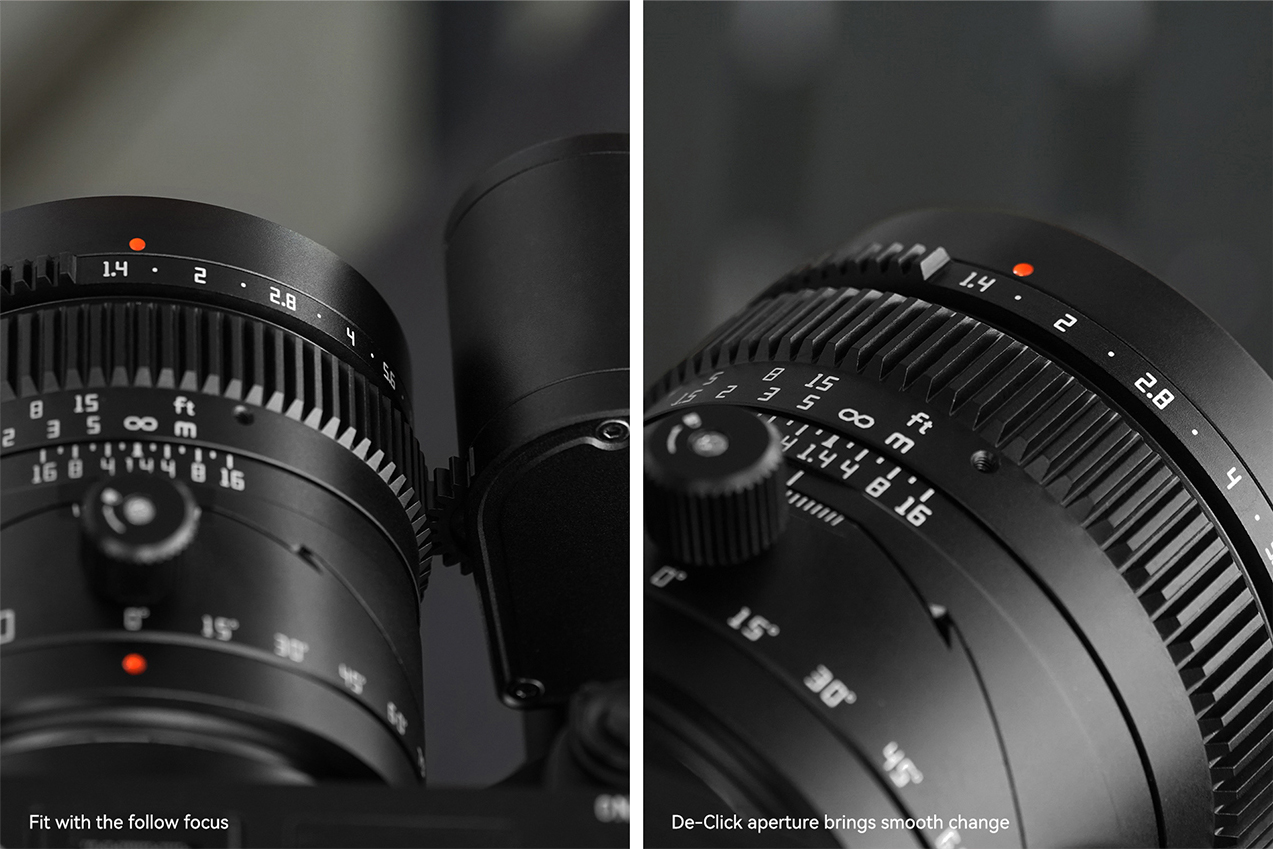
A tilt lens can be simply understood as: a conventional lens with a large imaging circle combined with a tilt mechanism becomes a tilt lens. Therefore, when the tilt angle is 0 degrees, it is a conventional 50mm f1.4 large aperture lens that can be used for normal portraits, humanities, sketches and other subjects. In addition, the optical performance is also more guaranteed. Because in the normal state, only the central part of the large image circle is utilized.

